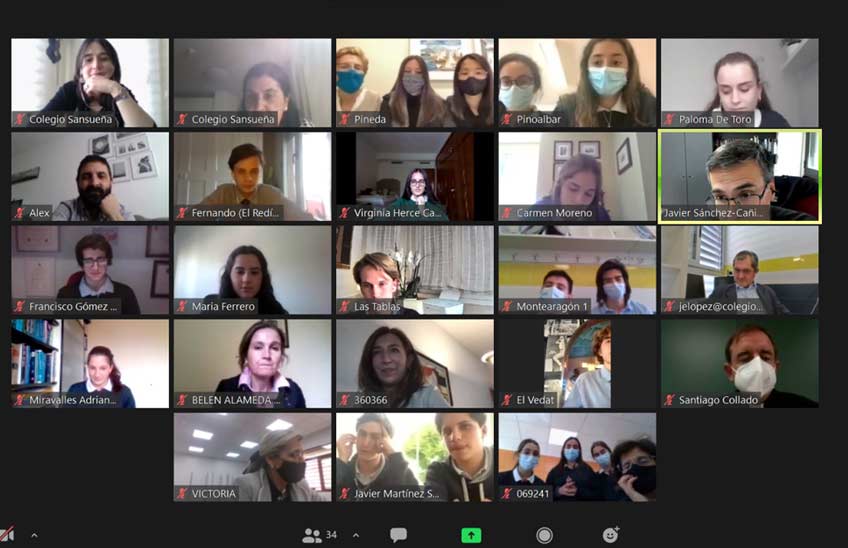Students from Los Robles (Gijón), Sansueña (Zaragoza) and Miravalles-El Redín (Pamplona) win a competition at essay on Education, science and religion.
252 students from 24 Spanish schools have participated in competitionpromoted by the CRYF and the ICS of the University of Navarra, focusing in its IV edition on human specificity in the face of artificial intelligence and transhumanism.

24 | 05 | 2021
resultStudents from the schools Los Robles (Gijón), Sansueña (Zaragoza) and Miravalles-El Redín (Pamplona) have won the IV contest of essay'Education, Science and Religion' of the University of Navarra. A total of 252 students from 24 schools from all over Spain took part, submitting 114 entries.
The competition is promoted by the group 'Science, Reason and Faith' (CRYF) and is framed in a project of research of the Institute for Culture and Society (ICS). In this edition, the topic of the essays dealt with 'Human specificity in the face of the challenges of artificial intelligence and transhumanism'.
The first awardwent to Gonzalo Fernández, from Los Robles, for his essay'Viaje hacia la especificidad humana: el pensamiento, la actuación y el sentido' (Journey towards human specificity: thought, action and meaning). Virginia Herce, from Sansueña, won the second prize with workgraduate 'In defence of the person, past, present and future'. The third prize went to Adriana Prado, from Miravalles-El Redín, for 'When will we be able to say that a machine thinks like a human being?
Two runners-up prizes were also awarded: one to Francisco Gómez and Fernando Sánchez-Carpintero, from Miravalles-El Redín, for their work'Transhumanism: to the universe and beyond?' and another to Josemaría Ferrer-Bonsoms, from high schoolLas Tablas-Valverde (Madrid) for 'Transhumanism and Artificial Intelligence: artificial evolution towards the post-human'.
projectfunded by the Templeton Foundation
This edition of competitionis part of project'Science and religion in Spanish schools', funded by the John Templeton Foundation. It is directed by Javier Sánchez Cañizares, director of the CRYF and researcherof group 'Mente-Cerebro' of the ICS; and Rubén Herce, member of the CRYF and professor of the SchoolEclesiástica de Philosophy.
In each of the three academic years covered by the initiative, teachers and students will study a topic topic: the origin of the universe and creation (2018-2019), evolution and divine action in the world (2019-2020) and the origin and specificity of man (2020-2021). The same questions are proposed in the corresponding editions of the essay competition.
The website 'Education, Science and Religion' contains the instructionsof the competitions and explains the nature and purpose of project: to analyse the problems perceived by schoolchildren and teachers in the field of relations between science and religion, in order to try to find short, medium and long term solutions deadline.
The projectalso aims to map the main narratives about God and religion used so far in science subjects, to create a permanent groupof teachers who will periodically address the pedagogical problems that arise when presenting a worldview where science and faith complement each other, and to prepare specific materials for science and religion courses in Spanish, which can be included in the curricula of science and religion courses. high school diploma.




